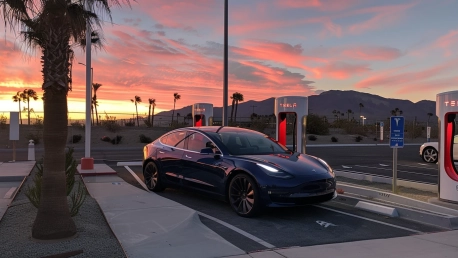Xpeng, a Guangzhou-based electric vehicle (EV) manufacturer, is stepping up its game in the competitive EV market by focusing on advanced autonomous driving technology. In a move that could give it an edge over Tesla, Xpeng has announced the release of its XOS 5.2.0 advanced driver assistance system (ADAS) via an over-the-air update scheduled for July 30, 2024. Unlike Tesla’s Full Self-Driving (FSD) system, which comes with significant costs, Xpeng’s new ADAS will be available for free in mainland China. This initiative highlights Xpeng’s strategic shift to distinguish itself from competitors and capitalize on its local market knowledge.
Enhancing Autonomous Driving Capabilities
The upcoming XOS 5.2.0, also known as the Xpeng Navigation Guided Pilot (X NGP), aims to revolutionize the driving experience by making Xpeng’s smart vehicles more adaptive to complex driving conditions. This software enables the vehicles to autonomously recognize traffic lights, negotiate turns, change lanes, and overtake other cars. X NGP’s competitive advantage lies in its cost-effectiveness, contrasting sharply with Tesla’s FSD, which requires an upfront payment of $8,000 plus a $99 monthly subscription. This pricing strategy could significantly impact consumer preferences, especially within a price-sensitive market like China’s.One of the critical elements that Xpeng leverages is its deep understanding of local traffic conditions. By tailoring its technology specifically for the complex driving environments found in China’s sprawling cities, Xpeng aims to deliver a more localized and effective autonomous driving solution. CEO He Xiaopeng has pointed out that while Tesla’s FSD has made strides, X NGP’s different approach serves the unique needs of Chinese drivers. This localized focus is expected to help Xpeng make a more profound impact on the Chinese market, setting it apart from global competitors.
The Competitive Landscape of EV Makers
The EV market in China is a hotbed of intense competition. Xpeng’s effort to advance its ADAS technology is in direct response to the ongoing rivalry with Tesla, as well as local competitors like Li Auto and Nio. These companies are all vying for market share by continuously innovating their autonomous driving systems, digital cockpits, and battery performance. The race to develop superior autonomous driving technology is particularly fierce, given its appeal to China’s affluent and technologically savvy consumer base who prioritize cutting-edge features.High-tech features like autonomous driving capabilities are crucial for attracting China’s affluent and tech-savvy consumer base. As Xpeng continues to test its X NGP software in over 300 cities across China, the company acknowledges that fully autonomous driving remains an aspirational goal. For now, human intervention is still necessary in various situations, reflecting the current limitations of autonomous technology. Even so, the progress made shows Xpeng’s commitment to pushing the boundaries of what its technology can offer, inching closer to the dream of fully autonomous vehicles.
Strategic Collaborations and Brand Initiatives
Xpeng’s strategic collaborations and branding initiatives further solidify its position in the market. The company, which is partially owned by Volkswagen, recently extended its partnership with the German automaker. This collaboration aims to develop advanced systems to enhance intelligent driving features, including setting up project houses in Guangzhou and Hefei focused on electrical/electronic (E/E) architecture. These systems are essential for connecting all in-car electronic control units, sensors, and actuators, supporting features like self-driving, digital connectivity, and infotainment.These collaborations underline the importance of strong partnerships in achieving technological advancements and market success. By working with Volkswagen, Xpeng is not only diversifying its technological base but also reinforcing its commitment to providing high-quality, intelligent driving solutions. This collaboration is anticipated to bring both companies a competitive edge and pave the way for new innovations in intelligent driving systems, benefiting consumers and the broader EV market.
Introduction of the Mona Sub-Brand
Xpeng is also diversifying its product offerings with the launch of its Mona sub-brand. Introduced in June 2024, the Mona brand aims to compete in the compact car segment, currently dominated by market leader BYD. Set to officially launch in the coming month, the Mona brand will feature autonomous driving systems and will be priced between 100,000 yuan ($13,828) and 150,000 yuan, making it an attractive option for budget-conscious consumers. This new sub-brand strategy underscores Xpeng’s intent to capture various market segments, from high-end to budget-friendly options.CEO He Xiaopeng has emphasized that the Mona brand’s growth strategies and development plans will reflect Xpeng’s overarching vision for technological advancement and market penetration. The introduction of this sub-brand aligns with the broader trend of accelerated electrification on China’s roads. It not only represents Xpeng’s ambition to extend its reach within the EV market but also illustrates the company’s dedication to making smart, autonomous driving more accessible to a wider audience.
The Path to Higher Levels of Autonomy
Xpeng, an electric vehicle (EV) manufacturer headquartered in Guangzhou, is making significant strides in the fiercely competitive EV market by focusing on cutting-edge autonomous driving technology. The company recently announced the imminent release of its XOS 5.2.0 advanced driver assistance system (ADAS), set to roll out via an over-the-air update on July 30, 2024. This move is poised to offer a distinct advantage over Tesla. While Tesla’s Full Self-Driving (FSD) system comes with hefty costs, Xpeng’s new ADAS will be offered free of charge in mainland China. This approach demonstrates Xpeng’s strategic effort to differentiate itself from rivals by leveraging its comprehensive understanding of the local market. By offering this advanced technology for free, Xpeng aims to attract a broad range of consumers, thereby expanding its market share. The release underscores Xpeng’s commitment to innovation and its focus on consumer accessibility, setting the stage for potentially reshaping the competitive landscape in the ever-evolving EV industry.









